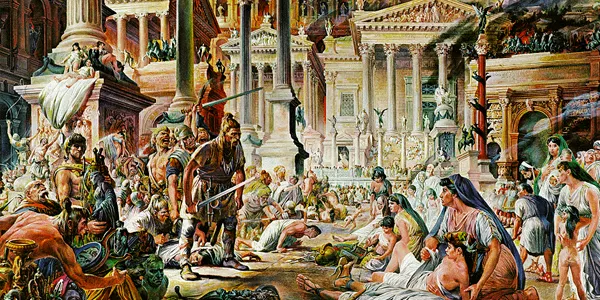European History Trivia: How Much Do You Know About European?🏰🎖️
2. What event marked the fall of the Western Roman Empire?

The sack of Rome by the Visigoths in 410 CE was a pivotal moment in the fall of the Western Roman Empire, shattering the myth of Rome's invincibility, but the widely accepted formal end of the empire is the deposition of the last emperor, Romulus Augustulus, in 476 CE by the Germanic chieftain Odoacer.
European history begins with ancient civilizations like Greece and Rome. These societies laid the foundations for democracy, philosophy, law, and art. The Roman Empire, stretching across the continent, introduced innovations in infrastructure, governance, and military organization that influenced Europe for centuries.
Medieval Europe
The Middle Ages saw the rise of feudalism, chivalry, and castles. Monarchs expanded their kingdoms, and the Catholic Church exerted a significant influence. Significant events such as the Crusades, the Black Death, and the Hundred Years' War shaped Europe's social and political landscape, leaving a lasting cultural legacy.
Cultural Awakening
The Renaissance sparked a renaissance in art, science, and philosophy, led by figures like Leonardo da Vinci and Michelangelo. Later, the Enlightenment, with its emphasis on reason, science, and human rights, inspired revolutions across Europe, including the French Revolution, which reshaped politics and society.
Modern Europe
Europe's modern history has been marked by conflict and unification. The Napoleonic Wars, the World Wars, and the Cold War dramatically altered borders and alliances. At the same time, movements for democracy, industrialization, and nationalism transformed daily life and governance across the continent.
Do you think you know European history? From ancient civilizations to modern states, this fun quiz will challenge your knowledge of historical events, leaders, and turning points. Test your memory and historical comprehension.
